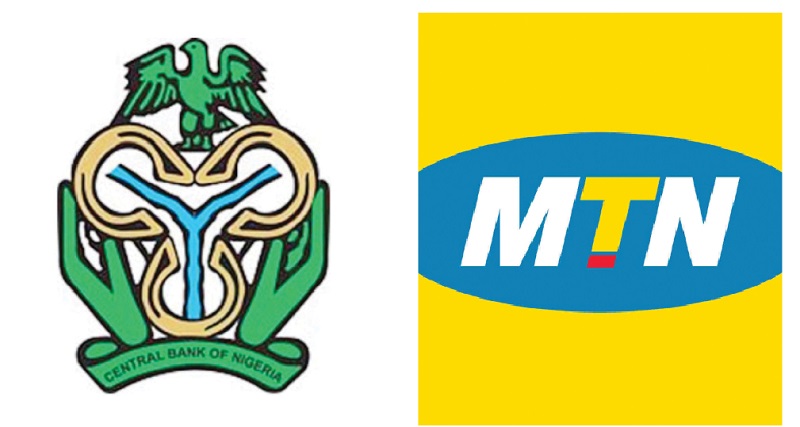I struggle with the argument that any company is too big to fail; if indeed MTN Nigeria has contravened our laws, they should be held accountable, as should other businesses and institutions that have facilitated or overlooked their unlawful activities. Businesses should be held to clearly defined standards, rules and regulations, and should be penalized when there are infractions.
That said, this particular situation leaves a lot to be desired. Unlike the 2015 fine, MTN has come out clearly refuting all charges made and filing for an injunction against the Central Bank of Nigeria (CBN). The company claims that no dividends have been repatriated using the Certificates of Capital Importation (CCIs) that have been called into question. If verified, this claim would invalidate the foundation of the CBN’s accusation. It is one which should be easily checked and refuted… it has not been. We need to know why?
A refund or a penalty?
At the beginning of this saga, the communications around it created extensive confusion. Language used by the CBN and AGF’s office made it difficult to understand whether this was a penalty being imposed on MTN, or simply a request for them to refund money, and receive the Naira equivalent. That lack of clarity in itself has created problems for the CBN, and for MTN, whose share price is now very sensitive to that kind of nuance. At least now, in the CBN’s court submission in response to MTN’s suit, there is a clear acknowledgement that MTN was not fined or sanctioned, and this is a simple request for a refund.
All about foreign exchange?
It is no longer news that Nigeria’s forex reserves have been gravely depleted despite increasing oil prices, which leaves room for speculation that MTN’s current travails may be deeply rooted in the government’s need to desperately generate foreign exchange.
Initial reports by the CBN suggested that the company was required to refund the entire sum – $8.1billion. Most recent development pertaining to the case, indicate the CBN has requested that MTN should pay an annualized 15 percent interest until courts rule on the conflict, and then 10 percent until the whole sum is paid. This was before the CBN Governor indicated over the weekend that he expected the resolution to be considerably lower than $8.1 billion or ‘dropped completely.’ These mixed messages are themselves difficult for the markets to digest, as they do best when provided with clear and consistent information.
But perhaps more fundamentally, we have to ask whether the CBN’s actions, if driven by the need for foreign exchange, have actually caused dollars to leave the country, rather than recovering them? Over the period of this process, billions of dollars have been wiped from Nigeria’s foreign reserves.
Has a desperate attempt to recover dollars, actually resulted in more dollars leaving and so more pressure on monetary policy and currency value? Monetary authorities need be very careful about how they address issues like this as they clearly have much broader ramifications.
If indeed MTN Nigeria has contravened our laws, they should be held accountable, as should other businesses and institutions that have facilitated or overlooked their unlawful activities. Businesses should be held to clearly defined standards, rules and regulations, and should be penalized when there are infractions.
Another very curious question is, where have all the checks and balances been? Has the company not paid dividends in recent years not covered by the refund request, or was a different process followed? Perhaps more interesting, if the company were to return the said $8.1bn, where would the CBN get the naira equivalent – approximately N3trillion, 33% of the country’s annual budget – to pay back? Even if the exchange rate used is N124 as suggested by an article published by Nairametrics, the amount still exceeds N1 trillion, and would leave the company at an incredible loss.
The apex bank’s request is a strange one indeed. Unless new money is printed to support the refund, the situation is sure to have a direct impact on our pockets.
Implications of the order
While the government is clearly fixated on earning revenue, the refund requested would likely have adverse effects not just on the company but the economy as a whole. The company is the biggest GSM operator in the country with over 60 million subscribers as at June 2018. It is also the sector’s largest investor. As such, this penalty will starve MTN of much needed funds to continue operations and expand its network. This has an immediate impact on the entire ecosystem, including trade partners and service providers, and in the long term will lead to poor service quality.
The latest debacle could also lead to the company putting on hold plans to carry out an Initial Public Offer (IPO) on the Nigerian Stock Exchange. It would obviously have a material effect, as for an IPO to take place, shares need to be offered at a price shareholders are willing to sell at. The offer would have been a big boost to the Nigerian capital market which is down over 15% year to date, but now looks unlikely, at least in its original form.
Foreign investors in the country are also watching cautiously and some have exited, on the fears the CBN would retroactively apply foreign exchange laws. Though the bank has since denied this, many of those investors would rather wait for the conclusion of the MTN case before taking a decision.
For a country that badly needs Foreign Direct Investment (FDI), the case against MTN is quite discouraging. The telecoms sector was the key driver in last quarter’s GDP performance.
Like I said, no company is too big to fail. However, as a nation we should think carefully before we engineer such failures, which will be tantamount to cutting off one’s nose to spite the face!
* Mark Amaza, a Lead Communications Strategist at Power for All, wrote this piece from Lagos.



